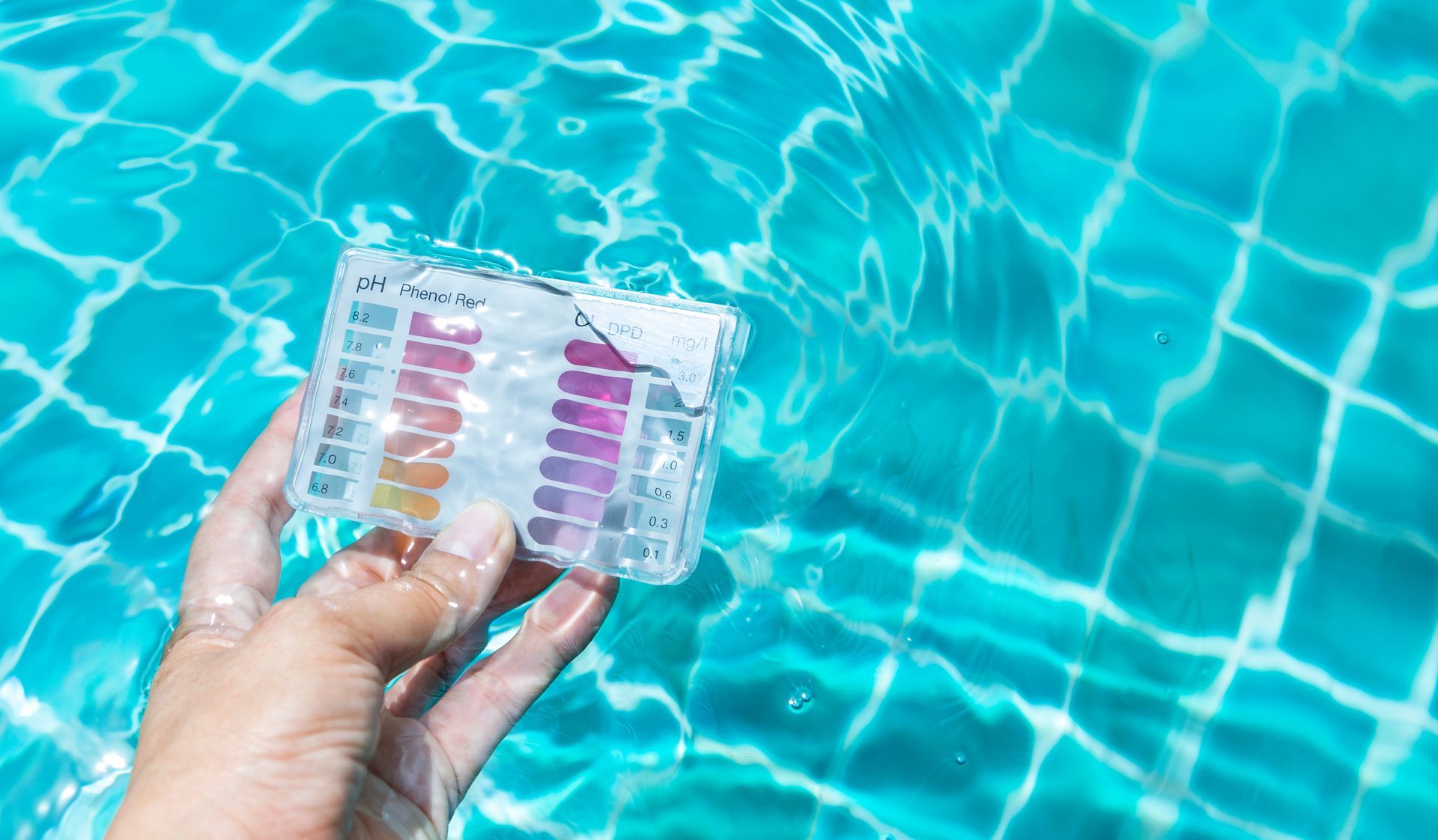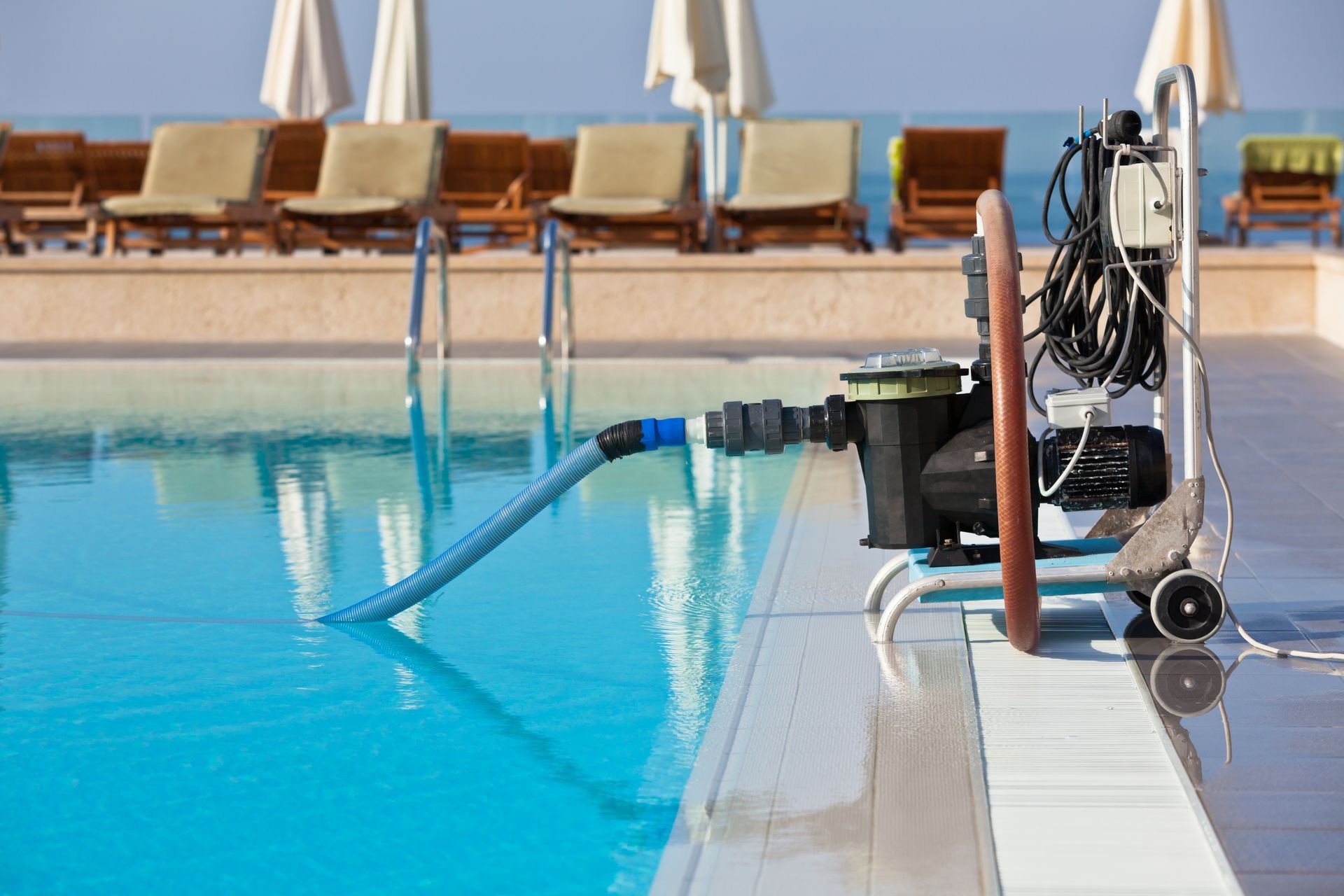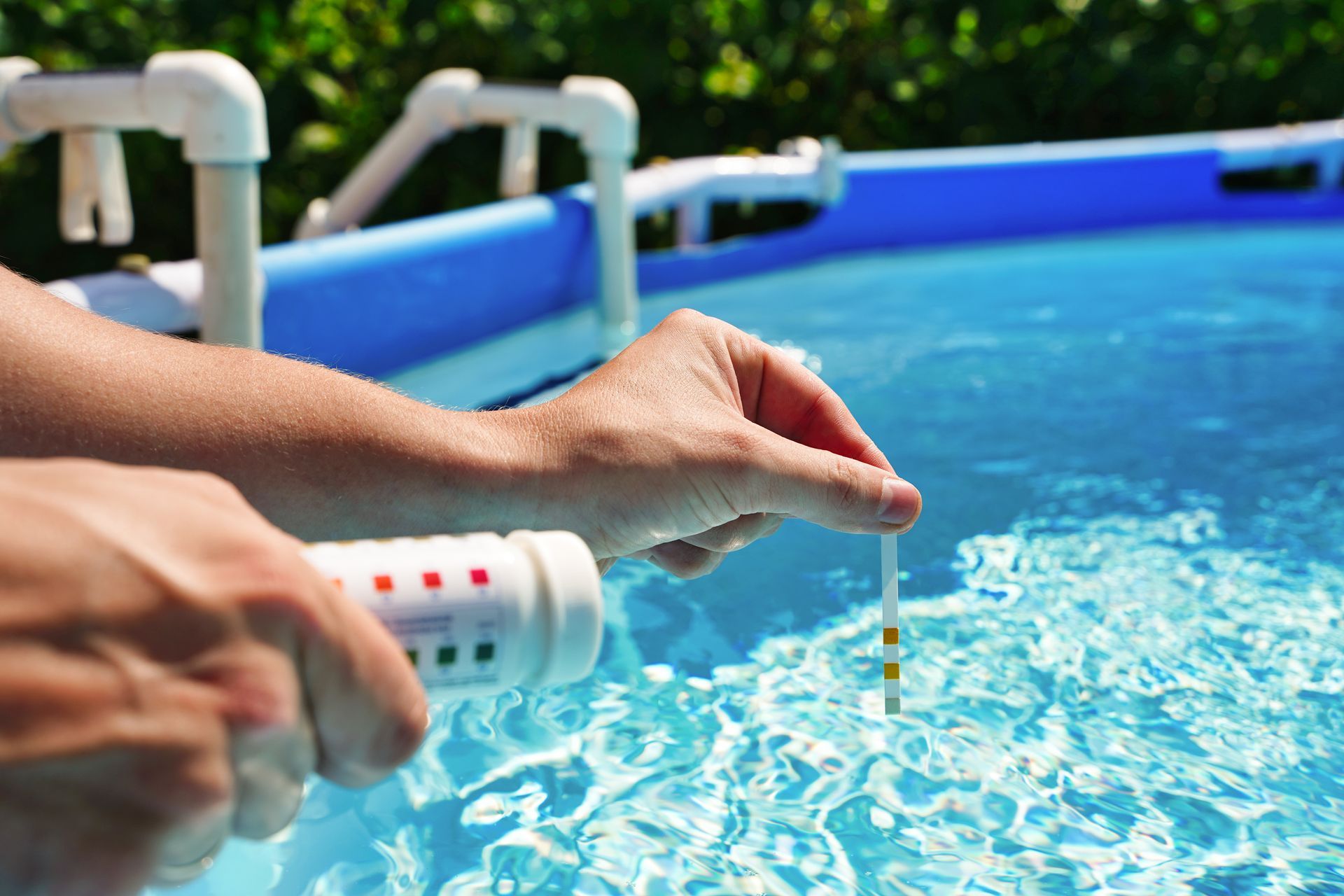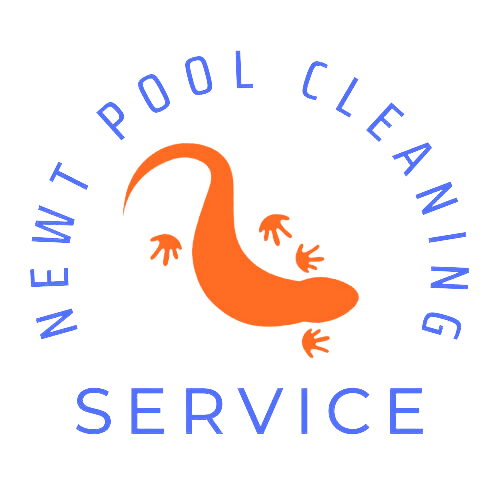Chemical Balancing and Water Treatment
Pool Chemical Balancing, Van Nuys, CA
Chemical balancing is a crucial aspect of pool maintenance, ensuring that the water remains safe, clear, and comfortable for swimmers. The role of various chemicals in maintaining pH balance, alkalinity, and sanitizer levels is paramount to achieve optimal water quality.
Firstly, pH balance is a measure of the acidity or alkalinity of the water. The ideal pH for pool water is between 7.2 and 7.6, as this range ensures the effectiveness of other chemicals and prevents irritation to swimmers. pH levels outside this range can lead to corrosion of pool equipment or cause discomfort to swimmers.
Alkalinity acts as a buffer to stabilize pH levels. It helps prevent rapid fluctuations in acidity and ensures that the pool water remains within the desired pH range. Sodium bicarbonate is commonly used to adjust alkalinity levels, maintaining a stable environment for other chemicals to work effectively.
Sanitizer levels, typically maintained through chlorine or bromine, play a crucial role in killing bacteria, algae, and other contaminants in the pool. These chemicals disinfect the water, making it safe for swimming. Regular testing and adjustment of sanitizer levels are necessary to prevent the growth of harmful microorganisms.
Pool chemical balancing involves maintaining the pH balance, alkalinity, and sanitizer levels within specific ranges. This not only ensures water quality but also protects the pool infrastructure and provides a safe and enjoyable swimming experience for users. Regular monitoring and adjustments are essential to uphold these chemical balances and promote a healthy aquatic environment.
Get a quote
Newt Pool Cleaning Leads
Effective Use of Chlorine in Pool Cleaning
Effective use of chlorine in pool cleaning is essential for maintaining a safe and hygienic swimming environment. Chlorine, a powerful disinfectant, comes in various forms, each with its unique applications in pool maintenance. The most common forms include liquid chlorine, granular chlorine, and chlorine tablets.
Liquid chlorine is a fast-acting solution that quickly disperses in water, making it suitable for shock treatments and rapid disinfection. Granular chlorine, in the form of small, easily soluble particles, is often used for regular maintenance and can be applied directly to the pool. Chlorine tablets, compact and convenient, are placed in automatic feeders or floaters to provide a slow, consistent release of chlorine.
Understanding the application of these forms is crucial for maintaining optimal disinfection levels. Shock treatments with liquid chlorine help combat bacteria, algae, and other contaminants, while regular use of granular chlorine or tablets helps maintain a consistent chlorine residual to prevent the growth of harmful microorganisms.
Best practices for ensuring optimal disinfection involve regularly testing the chlorine levels using a pool testing kit and adjusting the dosage accordingly. Maintaining a free chlorine level between 1.0 and 3.0 parts per million (ppm) is generally recommended. Additionally, proper circulation and filtration systems should be in place to ensure even distribution of chlorine throughout the pool.
Mastering the effective use of different forms of chlorine and implementing best practices is crucial for achieving and maintaining a clean, safe, and inviting swimming pool environment. Regular monitoring, proper application, and adherence to recommended chlorine levels contribute to the overall success of pool cleaning efforts.

Advanced Filtration Systems
Advanced Filtration Systems revolutionize pool maintenance by employing cutting-edge technologies to ensure crystal-clear water and a pristine swimming environment. These state-of-the-art systems represent the pinnacle of water filtration, surpassing traditional methods to deliver unparalleled clarity and purity.
At the heart of these advanced systems are innovative filtration technologies meticulously engineered to target and eliminate impurities with unprecedented efficiency. High-performance filter media, such as advanced sand or diatomaceous earth, work in tandem with sophisticated multi-layered cartridges to trap particles as small as a fraction of a micron. This meticulous filtration process goes beyond mere debris removal, addressing microscopic contaminants that often escape conventional systems.
These systems often integrate smart sensors and automation, allowing for real-time monitoring and adjustment based on water quality. This ensures optimal filtration performance at all times, adapting to varying environmental conditions and usage patterns. The result is not only pristine water quality but also energy efficiency and cost savings.
In addition to their superior filtration capabilities, these systems often boast user-friendly interfaces, providing pool owners with intuitive control over filtration settings. From remote monitoring via mobile apps to programmable schedules, the user-centric design enhances convenience and allows for effortless maintenance.
Advanced Filtration Systems redefine the standards of pool water quality, offering a seamless blend of cutting-edge technology, efficiency, and user-friendly operation. Pool enthusiasts can now enjoy a swim in water that is not only visually stunning but also free from the unseen impurities that may compromise health and comfort.


